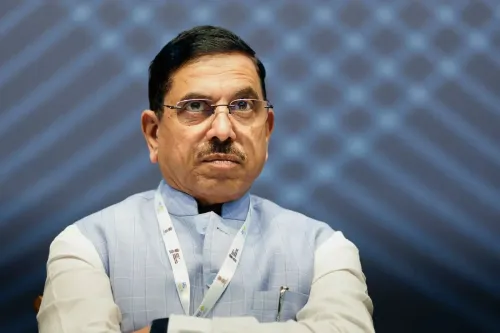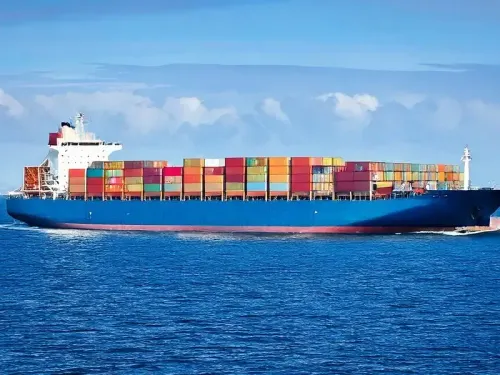Can the Korean shipbuilding industry forge ties with the US?

Synopsis
Key Takeaways
- Potential U.S.-Korea shipbuilding partnership
- Emphasis on maintenance, repair, and supply chain
- Focus on sustainable industry growth
- Exploring avenues beyond LNG carriers
- Strengthening international trade relations
Seoul, July 14 (NationPress) The shipbuilding industry in South Korea has expressed enthusiasm for the government's ongoing talks with the United States about potential collaborations in the sector, referring to it as a "new opportunity", according to Seoul's Ministry of Industry, Trade and Energy.
Officials from major shipbuilders, including HD Korea Shipbuilding & Offshore Engineering Co., and subsidiaries of Hanwha Group and Samsung Group, along with equipment manufacturers, convened in the southeastern port city of Busan to discuss strategies for promoting sustainable development within the industry.
During the meeting, shipbuilders voiced their hopes for fruitful cooperation with the U.S., particularly in areas such as maintenance, repair, and operations (MRO), as well as supply chain development, to facilitate the industry's growth, as reported by Yonhap news agency.
Park Dong-il, the ministry's director general for the manufacturing industry, who led the meeting, stated, "The government aims to formally advocate for the establishment of a Korea-U.S. shipbuilding partnership in the latter half of this year."
The government is also set to implement measures to explore new growth avenues for the industry, extending beyond the recent surge in liquefied natural gas (LNG) carriers, and to enhance the competitiveness of shipbuilding equipment manufacturers, he added.
South Korea's Trade Minister Yeo Han-koo previously suggested enhancing bilateral manufacturing cooperation to the administration of U.S. President Donald Trump as a method to mitigate Seoul's trade surplus with Washington during recent trade discussions.
The Trump administration showed significant interest in potential collaborations in the shipbuilding and semiconductor sectors, according to Yeo.
This proposal was made as Seoul aims to finalize tariff negotiations with the U.S. by August 1 to seek full exemption or reduction of the 25 percent reciprocal tariffs and sectoral duties on steel, automobiles, and other imports.










